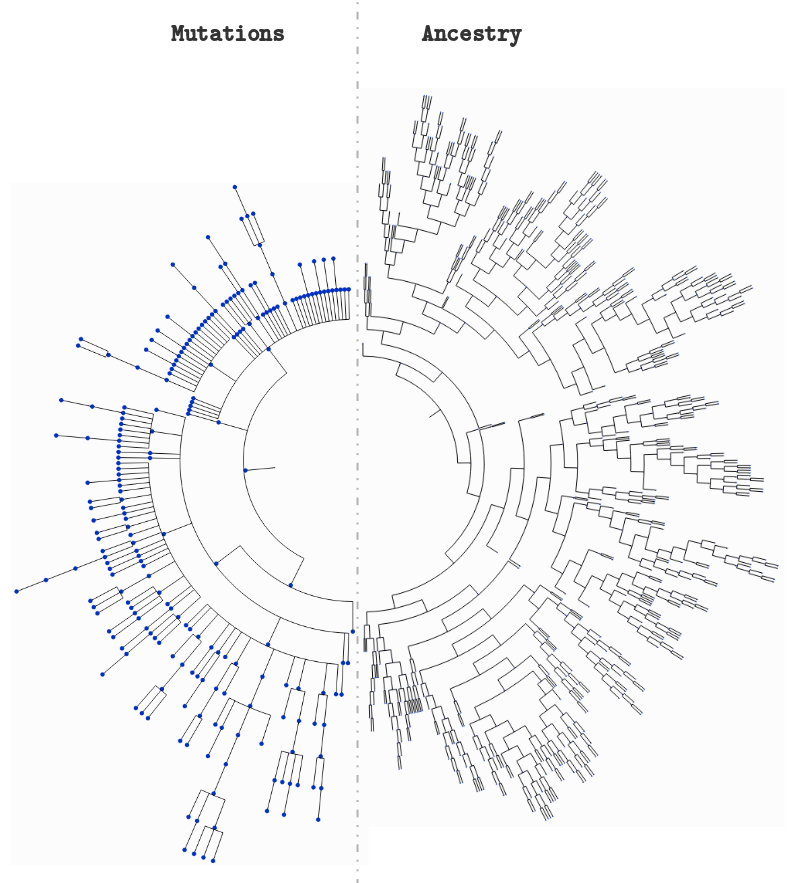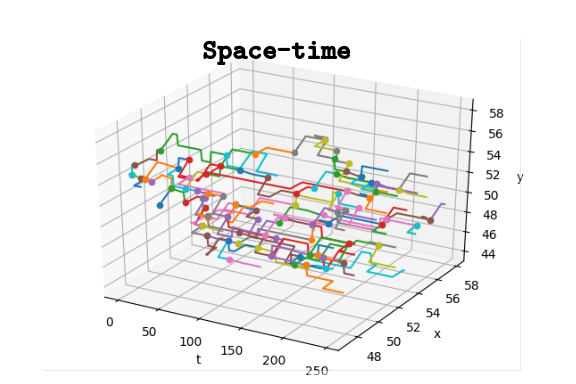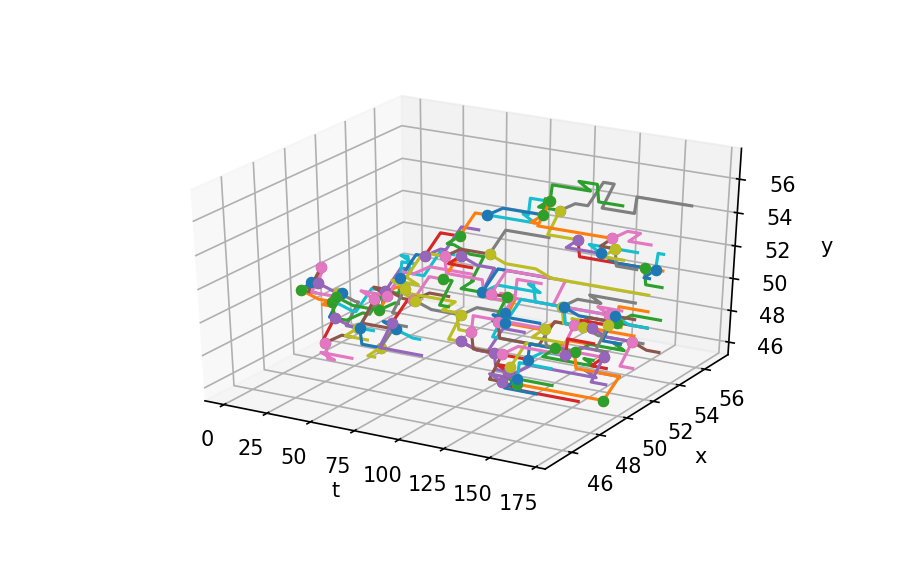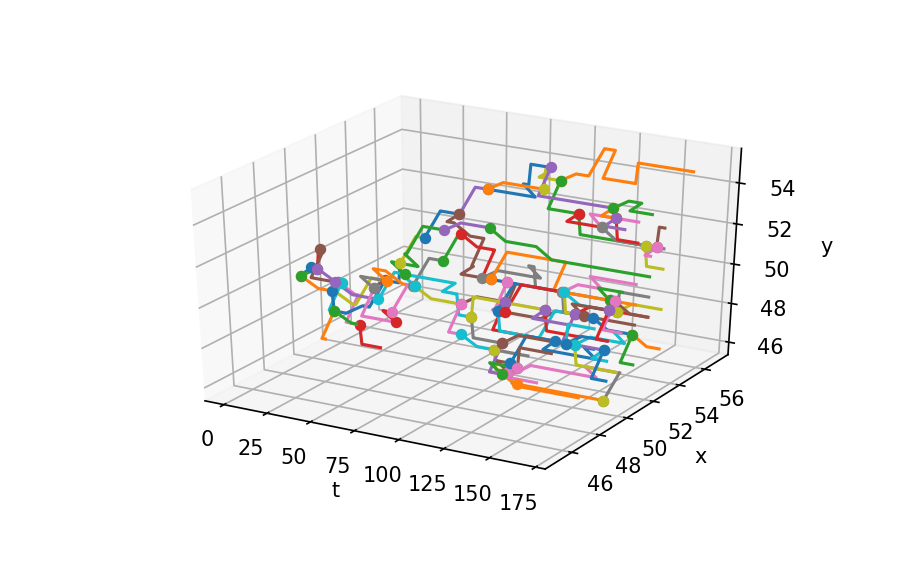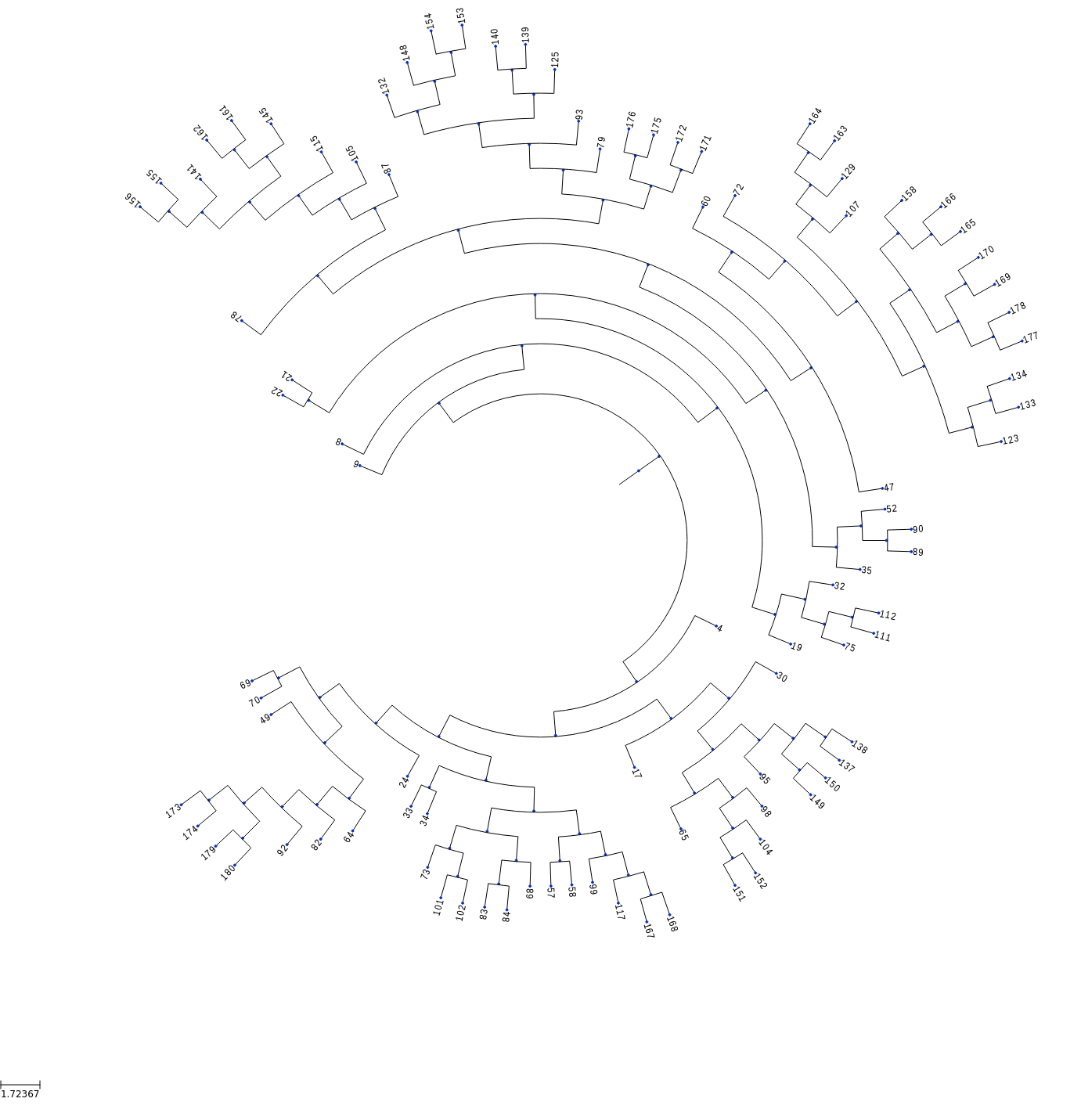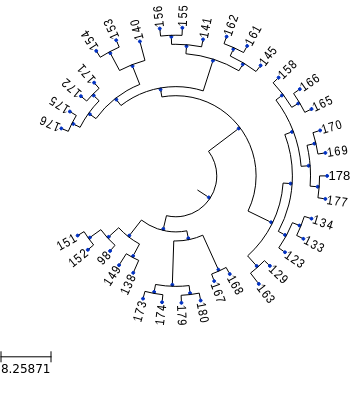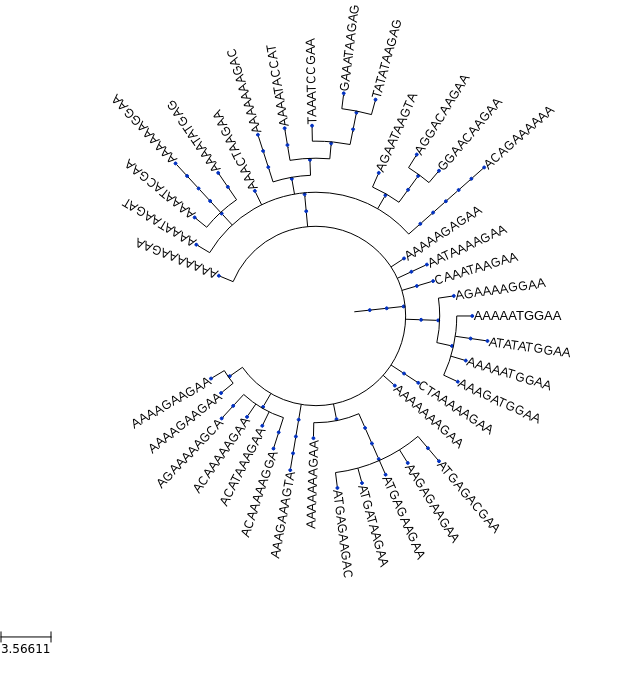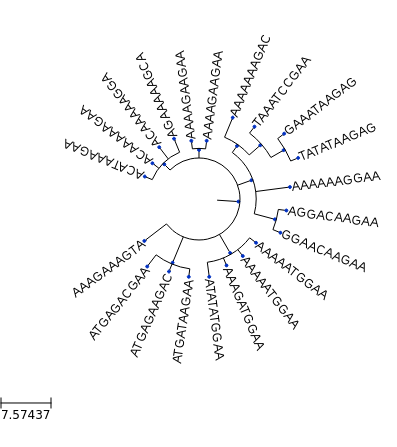
An agent-based framework for the simulation of biological cell systems.
This was created to simulate cancer growth, taking into account nutrients and cell migration while allowing to track mutations, cell division and cell position history to study tumour phylogeny reconstruction algorithms.
You can install it from PyPI:
$ pip install cellsystem
A use case integrated in the repository:
>>> from cellsystem import *
# The cell system will simulate cell growth
# while tracking the steps in that process.
>>> system = CellSystem(grid_shape=(100, 100))
# Initialize the first cell
# in the middle of the grid
>>> system.seed()
New cell 0 added @ (50, 50)
# Take 35 steps forward in time
>>> system.run(steps=30)
Cell no. 0 mutating @ site (50, 50) (father None)
Initial mutations: []
Initial genome: AAAAAAAAAA
Final mutations: [(4, 'G')]
Final genome: AAAAGAAAAA
Cell no. 0 dividing @ (50, 50)
New cells: 1 @ (49, 50) and 2 @ (50, 51)
Cell no. 2 dividing @ (50, 51)
New cells: 3 @ (51, 52) and 4 @ (51, 52)
Cell no. 4 mutating @ site (51, 52) (father 2)
Initial mutations: [(4, 'G')]
Initial genome: AAAAGAAAAA
Final mutations: [(4, 'G'), (7, 'A')]
Final genome: AAAAGAAAAA
Cell no. 1 death @ site (49, 50) (father None)
Cell no. 3 death @ site (51, 52) (father 2)
Cell no. 4 mutating @ site (51, 52) (father 2)
Initial mutations: [(4, 'G'), (7, 'A')]
Initial genome: AAAAGAAAAA
Final mutations: [(4, 'G'), (7, 'A'), (2, 'T')]
Final genome: AATAGAAAAA
Cell no. 4 migrating from site (51, 52) (father 2)
New site: (50, 52)
...
...
...
# Prepare to explore the simulation logs
>>> history = system['log']
# First, let's see the cells' evolution in time and space!
>>> history.worldlines().show()
# Remove the cells that died somewhere along the way
>>> history.worldlines(prune_death=True).show()>>> tree_style = {'show_leaf_name' : True,
... 'mode' : 'c', # Circular
... 'arc_start' : -135, # Degrees
... 'arc_span' : 270 } # Degrees also
# Lookup the tree formed by cellular division
>>> history.ancestry().show(styling=tree_style)
# Now, remove cells that are no longer alive
>>> history.ancestry(prune_death=True).show(styling=tree_style)# Now, check out the tree formed by the mutations
>>> history.mutations().show(styling=tree_style)
# Remove genomes with no living representatives.
>>> history.mutations(prune_death=True).show(styling=tree_style)Almost every aspect of the simulation is customizable. You can add several types of different interacting cell lines, also, worlds with different geometry and with diffusion, cells with other characteristics that can be logged, other kinds of logs. Change the rate of death, movement, etc of each cell and even add new cell behaviors!
For now the documentation for doing so is scattered through the class documentation strings, but a good place to start is by watching the source of the cellsystem.CellSystem class.
Author: Ad115 - Github – a.garcia230395@gmail.com
Distributed under the MIT license. See LICENSE for more information.
- Check for open issues or open a fresh issue to start a discussion around a feature idea or a bug.
- Fork the repository on GitHub to start making your changes to a feature branch, derived from the master branch.
- Write a test which shows that the bug was fixed or that the feature works as expected.
- Send a pull request and bug the maintainer until it gets merged and published.
